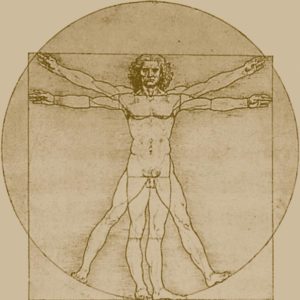Vulgarity, and thus this emoji, have become
the ultimate expression of equality today
When Apple demonstrated their animojis at their recent keynote event by using the above emoji {first introduced by Google}, they were acknowledging the commonality of vulgarity in everyday language. this emoji did not cause vulgarity in everyday language; however, it did acknowledge that vulgarity was wide spread and thus ready for a graphic expression. It is probably one of the more popular emojis in use today. Why?
To answer our question and address the concern in our title we must first apply the Law of Identity; that is, we must define the term vulgarity. According to Merriam-Webster dictionary vulgarity can mean: lacking in cultivation, perception, taste, morally crude, undeveloped, unregenerate, ostentatious {excessive in expenditure or display}, offensive in language, lewdly or profanely indecent or relating to the common people. According to Dictionary.com the term vulgar appears in the Latin referencing the common people as different from the educated people. Much later this began to include the concept of grossness, especially in relation to bodily functions and finally in the 19th century it also included those in fashion who were garish or ostentatious in their dress or mannerisms. How did vulgarity enter the mainstream of culture?
While a complete answer is impossible in anything less than a philosophical or religious book length treatise, I believe that the if I could pinpoint one influence that brought vulgarity into the mainstream of American pop culture it would have to be the work of Lenny Bruce, a comic of the 1950s and 1960s. While Bruce did nothing not previously seen in burlesque, he brought together sex, satire and profanity during the post World War II beatnik era that later morphed into the Gnosticism of the 1960s. Though he was condemned, literally in an obscenity trial, his schtick opened the flood gates for those who came after him such as the Smother’s Brothers and many of today’s comedians. One can hardly watch a comedic routine that does not contain references to bodily fluids, functions and actions to gain attention and money.
Indeed, I work in the healthcare industry among some of the most education people in America {I do anesthesia}. Many of us have years of collegiate and practical education; yet, these are some of the most vulgar people I have ever met {which is saying a lot since I not only grew up in the military but served for 26 years}. Their familiarity with the body seems to have bred contempt for the wonderful aspects of the body that first inspired the Renaissance man Leonardo Da Vinci to explore its workings. But, just as Da Vinci died in despair and Lenny Bruce from a morphine overdose so too does vulgarity indicate despair among modern society.

The study of the wonderful workings of the body
Should have inspired man to see God
Notice that the many vulgar expressions deal with bodily fluids or functions as expressions of rage, hate and derision. I believe that this illustrates man’s love-hate relationship with the body. The Bible says, “for no one ever hated his own flesh {body}, but nourishes and cherishes it…” (Ep 5:29). The body houses the soul. Without the body the soul would cease to live in this physical, material creation but would find itself facing absolute truth and reality (Lk 16:19-31). For the Christian it means to be absent from the body and present with the Lord while for those who die without Christ it means facing God clothed only in self-righteousness and eternal torment in the hopeless search for Christ’s righteousness {wedding garment} (Mt 22:1-14; 2Co 5:8; Re 20:11-15). At death the body ceases to exist, returning to the elements from which it was made {“dust to dust”} (Ge 3:19; Ec 3:16-20). But, the soul lives forever always conscious of its choices and consequences.
Yet, our current physical body embodies the dichotomy of our sinfulness. Each person loves his body because it represents life; however, this self-same body also reeks of death and decay reminding us of the fragile temporariness of our time allotted to us. Everything that leaves the body reeks of decay: halitosis {bad breath}, body orders, urine, feces, vaginal secretions and yes, even hair loss reminds us that our time is limited. Man uses these images to deride the body and degrade those whom he disagrees. The very act of intimacy and procreation has become the most common word of derision and violence toward others. Indeed, it is because man’s body reminds him of his temporal time, man seeks to shed this body as a symbol of freedom and roam among the stars as disembodied forms of consciousness – like they envision God. Thus, they seek to be their own gods; but, they err. This Gnosticism collapses under its own delusion.
Being free of this physical, material body is not freedom. We are not created as spiritual beings for God had already created a group of spiritual beings, angels {those who rejected God then became demons but still retained their spiritual essence}. We are made to inhabit a body both now and in eternity future whether saved or lost (2Co 5:1-4; Mt 22:13). There is no empirical evidence for life elsewhere other than one’s belief in evolutionary philosophy {which has yet to be supported by empirical evidence on earth}. Thus, man is caught in a cycle of hopeless despair.
Yet, Gnosticism in its many forms is popularized in the common {popular} media as the true path to fulfillment despite its lack of empirical data and its tragic results in everyday lives. The more man clings to the hopelessness embodied in Gnosticism, the more he evidences his faith in obscene vulgarity as proof of his freedom from God and the more he becomes enmeshed in the “slough of despond”. Yet, man does achieve one goal which he has deemed more important above all other expressed goals: equality.
Remember that in the Latin vulgar simply meant common such as in the common people. The single most important goal for modern man is equality. All peoples must be equal in all aspects meaning that there can be no exceptional people. Modern education has eradicated the concept of exceptional demanding that all aspire to the goal of mediocrity; any who show exceptionality are drugged into mediocrity. This hatred of striving to be something more than you currently are has legitimized the very language of despair even among those most educated who should be helping others to achieve their own exceptionality; instead, all are demanded to be the same: vulgar. This vulgarity is expressed in words and deeds {one reason pornography proliferates in all societies}. The unspoken message in comedy is that everyone must be the same, speak the same and attack those who are not the same. But, the result cannot be hid: despair.
Modern man and his societies proliferate in despair as evidenced by violence in thought, word and deed. The pseudosciences of psychology and psychiatry permeate throughout our society pretending to give hope and the promise of healing {which never comes} as man bravely marches into oblivion. However, the human soul sees the truth and despairs. Hating God, refusing to seek God, man can only assuage his despair in a flood of self-indulgent drugs, alcohol, sexual decadency and the rebellious rhetoric of profanity that masquerades as freedom of expression. These pursuits only deepens despair until even death looks peaceful. But, for those without Christ there is no peace with death, only the future of eternal torment in search of righteousness that will be forever out of reach because of decisions made in this life. There should be no despair for the Christian but many do despair for they have become caught in the lies of Lucifer; pursuing myths they have resisted the peace of Christ. But, these shall enter into the “rest of Christ” not because of their failures but because of His faithfulness. Our language displays our beliefs: vulgarity with its anger and hopelessness raging against God; or the peaceable words of grace from the indwelling Spirit of grace evidencing the new creation clothed in Christ’s righteousness and hope (2Co 5:17). Which proceeds from your mouth (Mt 15:16-20)?

